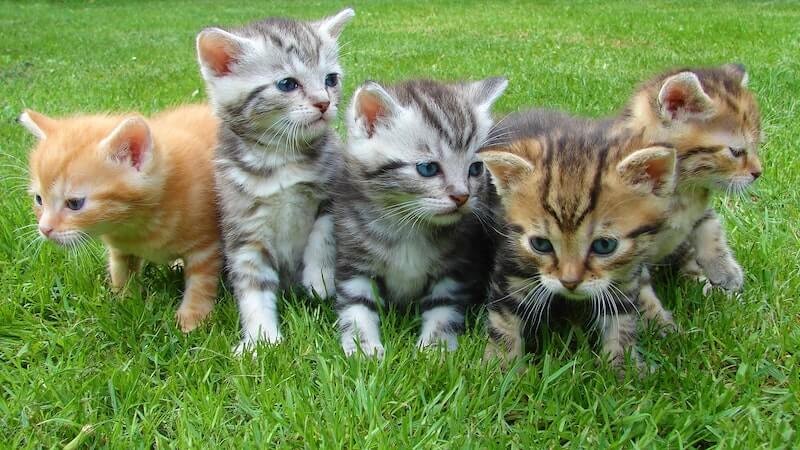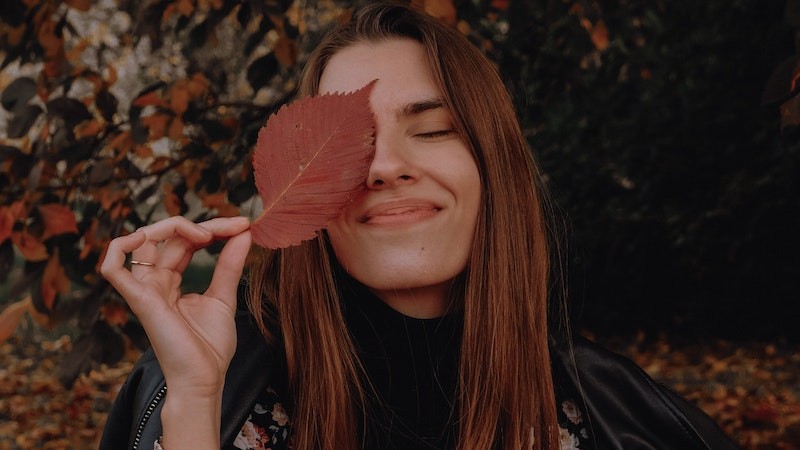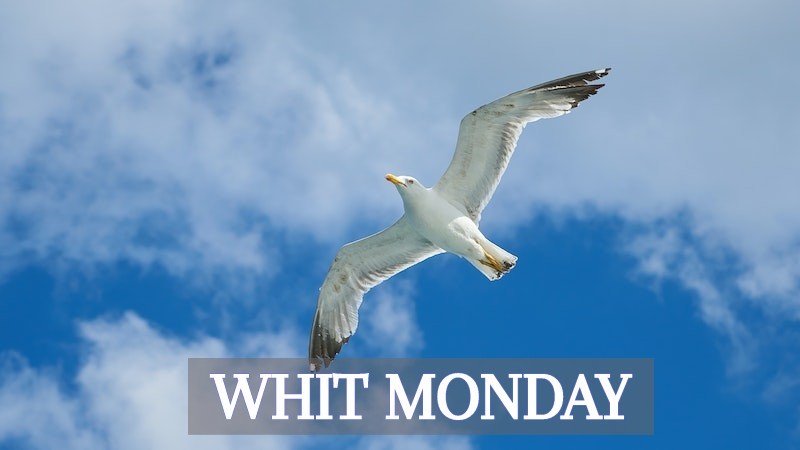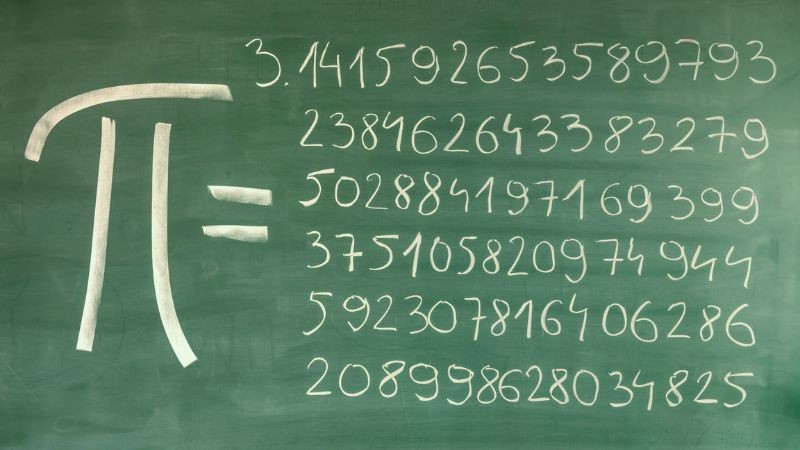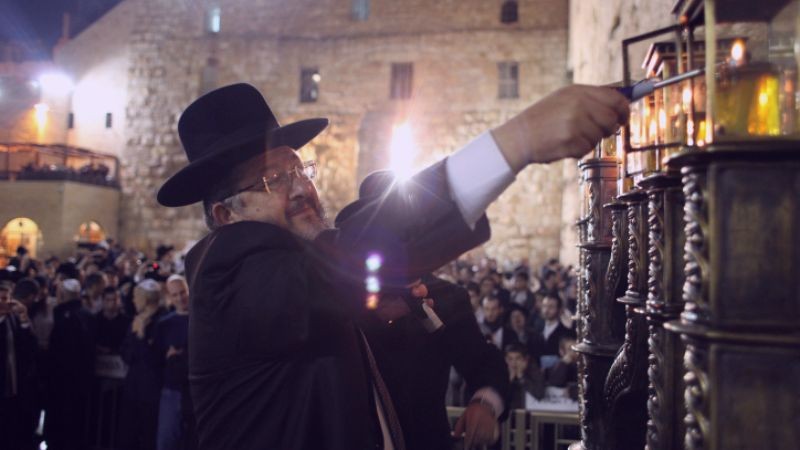
What is Hanukkah?
On the Hebrew calendar, Hanukkah starts on the 25th of Kislev andoften takes place in November or December.
Hanukkah is the Jewish wintertime "holiday of lights," observed for eight days with special prayers, nightly menorah lighting, and fried foods.
In addition, it is a Jewish holiday celebrating the reclaim of Jerusalem and subsequent rededication of the Second Temple at the start of the Maccabean uprising against the Seleucid Empire in the second century BCE. Hanukkah means "dedication" in Hebrew.
The Hebrew term, also spelled Chanukah (or variations of that spelling), is spoken with a guttural "kh" sound, kha-nu-kah, rather than tcha-new-kah.
Hanukkah - All Quick Overview
- Category: Culture
- Where It’s Marked: Jewish people across the world celebrate this day
- Why It’s Marked: Hanukkah commemorates the Maccabean triumphs over the army of the Seleucid ruler Antiochus IV Epiphanes, as well as the reclaiming of the Temple on Kislev 25, 164 BCE.
History of Hanukkah
The events that led to the Hanukkah holiday occurred during a challenging period in Jewish history. Around 200 B.C., Antiochus III, the Seleucid monarch of Syria, took possession of Judea, modern-day Israel/Palestine, and enabled the Jews who lived there to continue practicing their faith. His son, Antiochus IV Epiphanes, was less kind. According to ancient sources, he abolished the Jewish religion and commanded Jews to worship Greek gods.
In 168 B.C., soldiers under Antiochus IV Epiphanes invaded Jerusalem, slaughtering thousands of people and desecrating the Second Temple by building an altar to Zeus and offering pig sacrifices inside its holy walls.
A massive uprising against Antiochus and the Seleucid kingdom began, led by the Jewish priest Mattathias and his five sons. In 166 B.C., Matthathias passed away, and his son Judah, sometimes known as Judah Maccabee or "the Hammer," assumed control. With the use of guerilla tactics, the Jews were able to successfully push the Syrians out of Jerusalem in less than two years.
The uprisings were successful, and the Jews were again allowed to practice their religion in their temples. To do this, Judah commanded his disciples to clean the temple and keep a menorah burning all night long each night until the new altar could be erected over the old one.
It is the menorah or gold candelabrum, whose seven branches symbolize knowledge and creation and were meant to be lit every night. However, one flask of oil remained, which would only last one night. They lit it nonetheless, and it burned for eight days, the period required to press new oil.
According to one of Judaism's most important writings, the Talmud, Judah Maccabe, along with the other Jews who were engaged in the rededication of the Second Temple, experienced a miracle. Although there was only enough untainted olive oil to last a single day, the flames flickered for eight nights, giving them time to discover a new source. This remarkable occurrence led Jewish sages to declare an annual eight-day feast.
How to Celebrate Hanukkah?
Hanukkah's celebratory ambiance is characterized by light as a metaphor for spiritual freedom and is derived almost exclusively from family rituals and customs. Special holiday music, games, and delicacies highlight this day.
You can celebrate Hanukkah at home by-.
1. Lighting the Hanukkah Candles
Lighting the menorah, the eight-branched candelabrum, is the ritual that defines Hanukkah. To celebrate Hanukkah, make sure you have a menorah already in your house.
The menorah is typically lit in a location where the candles can be seen from outside, near a window or a doorway, because the goal of these Hanukkah lights is to proclaim the Hanukkah miracle publicly. However, if this menorah's public location poses a fire risk or anti-Semitism, the lights may be turned on in another part of the house.
2. Playing Dreidel
You can play dreidel. It is a popular Hanukkah game played with a four-sided spinning top known as a dreidel in Yiddish (sevivon in Hebrew).
3. Hanukkah Blessings
Sephardic Jews (Jews of Spanish or Mediterranean ancestry) and Ashkenazi Jews (Jews of Eastern European origin) recite two blessings every night, affirming the directive to light the Hanukkah candles and recall the Hanukkah miracle.
4. Enjoying Hanukka Traditional Food
Hanukkah is incomplete without traditional foods. You can make any or all of the traditional foods for Hanukkah, including Latkes, Sufganiyot (Jelly-Filled Doughnuts), Beef Brisket, Roasted chicken, Challah, Knish, Kugel, Matzo ball soup, and Rugelach.
5. Signing Songs, Exchanging Gifts, and Gelt
Hanukkah is also a time for joyful singing, including older songs written in the United States, Israel, and other countries, as well as classic Ashkenazic and Sephardic melodies. For Hanukkah, you can also decorate your house.
On this day, children in Europe were traditionally given gifts, raisins, almonds, and some Hanukkah gelt (or "money"). But now you can give your children any gifts they want.
Countries That Observe Hanukkah
Jews around the world observe Hanukkah for eight nights every winter. Although Hanukkah isn’t a national holiday in Israel, schools remain closed for the eight-day festival, but business runs as usual.
But countries like Italy, Canada, Colombia, England, France, Germany, Hungary, Morocco, Russia, Turkey, and the United States also celebrate Hanukkah with many activities. However, none of these countries mark the day as an annual holiday.
Interesting Facts About Hanukkah
- Hanukkah is Hebrew for "dedication," referring to the temple's rededication following the Maccabees' victory.
- Hanukkah is derived from the Hebrew verb "Hinuch," which means "to teach.
- Hanukkah is celebrated for eight nights to commemorate how miraculously one night's oil supply lasted up to 8 days.
- A candelabra with nine candles called a menorah is lit each night of the holiday.
- Because Hanukkah celebrates the miracle of oil keeping the menorah light, traditional meals are fried. Typical dishes include blintzes, jelly doughnuts, and latkes.
- The largest menorah in the world is allegedly located in Grand Army Plaza in New York.
- The main Jewish festival is not Hanukkah. Rosh Hashanah and Passover are considerably more important to Judaism than other Jewish holidays.
- The first president to observe Hanukkah at the White House was Harry Truman.
- There isn't really a right or wrong way to spell Hanukkah in English. Hanukkah is spelled "חנוכה" in Hebrew; however, there is no standard English spelling because Hebrew cannot be written with English letters.
- In Israel, Hanukkah is celebrated with the consumption of about 17.5 million jelly donuts.
Unique Hanukkah Celebration Ideas
If you want to make your Hanukkah a little more special, unique, and more happening this year, you can try other ways to celebrate the day.
1. Host a Potluck
Hanukkah is a great occasion to host a potluck. Every guest can easily select one dish to prepare and bring for Hannukah from traditional foods.
2. Set an Ugly Sweater Theme
Invite family and friends and ask them to wear their ugliest Hanukkah sweater—yes, there are such things. Please make it clear that ugly Christmas sweaters are not permitted at the gathering. We've all seen more knit reindeer than we can remember.
3. Host a Hanukkah Gift Swap
Togetherness is the essence of holidays, and exchanging gifts with those we care about is a great way to show affection. When you arrange a gift exchange at your Hanukkah party, your guests will take something to remember the occasion.
4. Play Poker With Gelt
Invite your guests to a game of traditional poker. However, use gelt to put bets rather than chips (boring) or cash (stressful). Don't forget to eat a little while you play.
Hanukkah Quotes
There are many beautiful quotes on Hanukkah by famous people who tried to understand the true beauty of Hanukkah and let people know the true meaning of this day.
"On Hanukkah, the first dark night, light yourself a candle bright. I'll you, if you will me, invite to dance within that gentle light." - Nicholas Gordon
"Hanukkah is about the freedom to be true to what we believe without denying the freedom of those who believe otherwise." - Rabbi Jonathan Sacks
"The proper response, as Hanukkah teaches, is not to curse the darkness but to light a candle." - Irving Greenberg
"The spirit of Hanukkah, the Festival of Lights, is shared by all people who love freedom." - Norma Simon
FAQ
1. Are Hanukkah and Chanukah the same thing?
Yes. Hanukkah is the most commonly used spelling, but Chanukah is more traditional.
2. Why is Hanukkah Celebrated for eight days?
The temple required a holy light to be lit at all times, but the Jews barely had enough oil to last one night. The light somehow lasted eight days. This wonderful occurrence led Jewish sages to declare an annual eight-day feast.
3. What are the Hanukkah Traditions?
Hanukkah tradition includes setting the menorah on fire, spinning the dreidel, eating gelt, preparing delectable foods, and opening the Hanukkah present.
4. What is the Hanukkah Miracle?
The Hanukkah miracle is how one night's worth of oil lasted eight days.
Hanukkah Observances
| Year | Weekday | Date | Name | Holiday Type |
|---|---|---|---|---|
| 2023 | Fri | 08 Dec | Hanukkah | Non Public |
| 2024 | Thu | 26 Dec | Hanukkah | Non Public |
| 2025 | Mon | 15 Dec | Hanukkah | Non Public |
| 2026 | Sat | 05 Dec | Hanukkah | Non Public |
| 2027 | Sat | 25 Dec | Hanukkah | Non Public |
We constantly update the dates of holidays that keep changing every year. However, while we revise and change some dates to be accurate, if you find any errors, kindly inform us . That will mean a lot to us.
